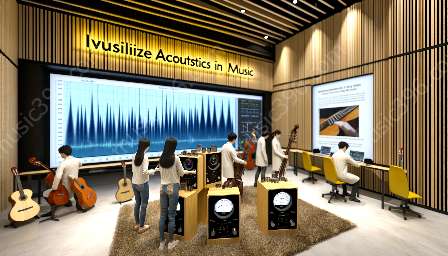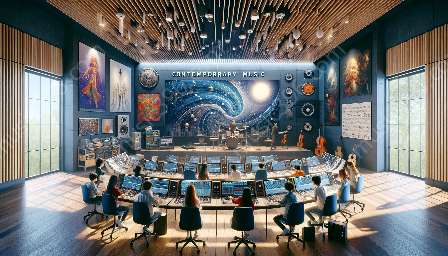Neuroscientific research and instrumental learning are two diverse yet interconnected fields that hold immense significance in understanding human cognition, skill acquisition, and behavior. In this exploration, we delve into the fascinating intersection of these areas and their relevance to instrument studies and music education.
The World of Neuroscientific Research
Neuroscientific research encompasses a broad spectrum of studies aimed at unraveling the intricate workings of the human brain and nervous system. It delves into the fundamental processes underlying perception, learning, memory, and motor skills, offering invaluable insights into the complex mechanisms that govern human behavior and cognition.
Understanding the Brain's Response to Music
One of the most captivating aspects of neuroscientific research is its investigation into the brain's response to music. Studies have revealed that listening to music engages multiple areas of the brain, leading to heightened emotional responses, improved mood, and enhanced cognitive function. Furthermore, research has shown that musical training can induce structural and functional changes in the brain, highlighting the profound impact of instrumental learning on neural plasticity.
The Science of Instrumental Learning
Instrumental learning, particularly in the context of music education, is a dynamic process that involves the acquisition and refinement of motor skills, auditory perception, and cognitive abilities. Learning to play a musical instrument not only hones technical proficiency but also fosters creativity, discipline, and emotional expression.
Neuroplasticity and Skill Acquisition
Neuroscientific research has shed light on the concept of neuroplasticity, which underscores the brain's remarkable ability to reorganize its structure and function in response to learning and experience. The process of instrumental learning provides a compelling platform for studying neuroplasticity, as it involves the refinement of motor skills, coordination, and auditory processing, all of which are mediated by intricate neural networks.
Intersection of Neuroscientific Research, Instrumental Learning, and Music Education
The convergence of neuroscientific research, instrumental learning, and music education holds immense promise in revolutionizing teaching methods, curriculum design, and educational practices. By integrating neuroscientific findings into instrumental pedagogy, educators can optimize learning experiences, tailor instruction to individual needs, and unleash the full potential of learners.
Application of Neuroimaging Techniques
Advancements in neuroimaging techniques such as functional magnetic resonance imaging (fMRI) and electroencephalography (EEG) have allowed researchers to observe the neural correlates of instrumental learning and music processing in real time. These tools offer a unique window into the dynamic interplay between brain activity and musical proficiency, paving the way for innovative approaches to enhance learning outcomes.
Cognitive Benefits of Musical Training
Neuroscientific research has consistently demonstrated the cognitive benefits of musical training, ranging from improved executive function and memory to heightened auditory processing and language skills. By leveraging this knowledge, music educators can design targeted interventions to harness the cognitive advantages of instrumental learning, thereby enriching the overall educational experience.
Future Frontiers in Neuroscientific Research and Instrumental Learning
As neuroscientific research continues to unravel the complexities of the human brain and instrumental learning evolves with innovative pedagogical methods, the future holds boundless possibilities for advancing our understanding of cognition, skill acquisition, and music education. By embracing interdisciplinarity and harnessing the synergies between these dynamic fields, we can unlock new avenues for enhancing human potential and enriching lives through the transformative power of music.















